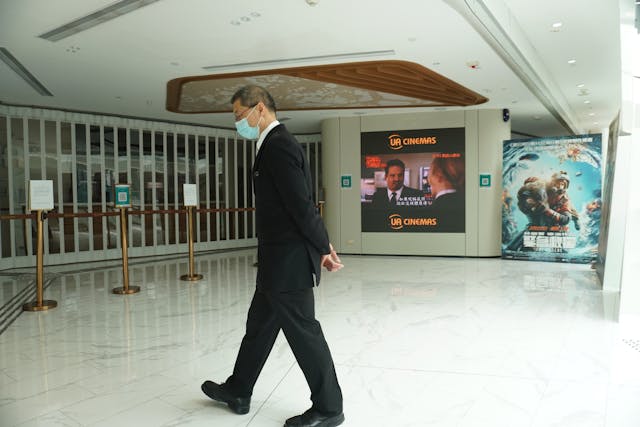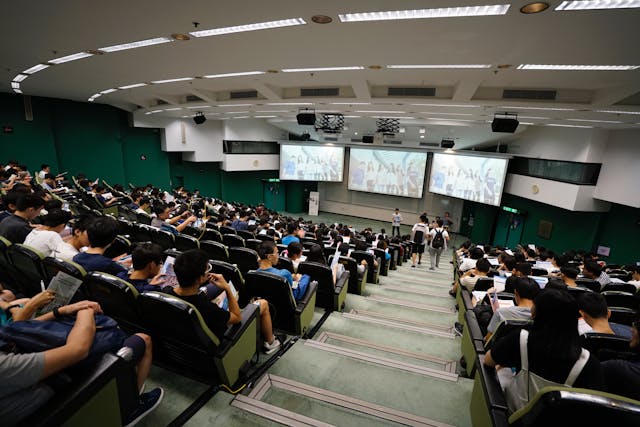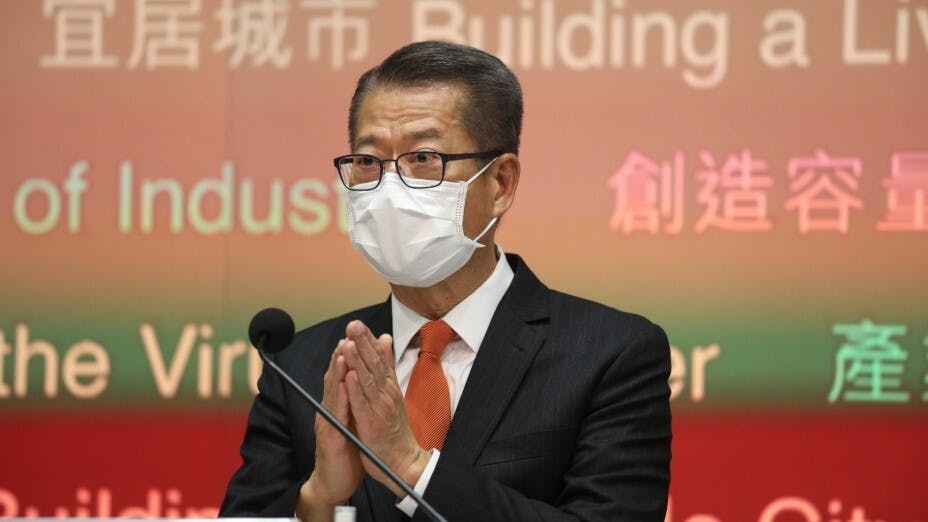從財政司司長陳茂波2月23日發表的《2022/23年度財政預算案》演說內容來看,特區政府不僅在預算案中保持審慎理財的原則,而且引入累進差餉制度。總體而言,在疫情尚未見頂的困難時期──據一些公共衛生專家預計,3月將達到疫情高峰期──預算案對本港產生了積極影響。
多項寬減措施 盡力紓解民困
預算案演說最重要強調的,就是盡力紓解民困,包括寬減2021/22課稅年度百分之百的薪俸稅和個人入息課稅,上限1萬元;寬減2022/23年度四季的住宅物業差餉,首兩季以每戶每季1500元為上限,其後兩季以每戶每季1000元為上限;為每個合資格電力住宅用戶提供1000元的電費補貼;向領取社會保障金額的合資格人士,發放金額相當於半個月的綜援標準金額、高齡津貼、長者生活津貼或傷殘津貼;以及為參加2023年香港中學文憑考試(DSE)的學校考生代繳考試費。另外,政府會就市民每月超出200元的實際公共交通開支,提供三分之一的補貼,同時設立住宅租金開支扣除。
為刺激本地消費和提振市場氣氛,預算案提出在4月和年中,向成功登記的市民分期發放10000元電子消費券,整個計劃涉及約664億元財政承擔。
為緩解企業經營壓力,政府提出多項措施,寬減2021/22課稅年度百分之百的利得稅,上限為1萬元;寬減2022/23年度四季的非住宅物業差餉。另外,建議寬免2022/23年度的商業登記費;減收非住宅用戶75%的應繳水費及排污費8個月,至2022年11月底;豁免或寬減34類政府收費,為期12個月,惠及多個行業,包括航空、海事、物流、零售、飲食、漁農、建造,以至旅遊及娛樂業等。預算案又建議寬減現時適用於政府處所合資格租戶、地政總署轄下合資格短期租約及豁免書的75%租金和費用,為期6個月,至2022年9月底。

暫緩追討欠租 商界有彈有讚
為中小企紓困,最有意思莫如為指定行業商戶提供「暫緩追討欠租安排」的建議。政府了解到,新冠疫情持續,許多中小企業正面臨困境。因此,預算案建議透過立法,禁止業主對未能如期繳交租金的租戶,終止租約、服務,或採取其他法律行動。措施為期3個月,可按需要延長最多3個月。有關安排「讓處於水深火熱的企業有喘息空間,亦協助穩住就業」。
據傳媒報道,條例涵蓋的指定行業包括599F章規管的23類表列處所,亦包括13類第6輪防疫抗疫基金的指定處所,以及零售業和興趣班等,即合共38類場所。例如理髮店、遊戲中心、健身中心、按摩店、餐廳、零售商店、幼稚園和私立學校等。
事實上,在疫情持續期間,按摩店、理髮和餐廳都受到嚴重影響。目前,香港商業氣氛黯淡,社會等待着Omicron變種病毒盡快消失。街上許多商店都已經關閉。鑑於3月將見到動員大規模的檢測,商業活動可望在4月下旬或5月恢復正常。因此「暫緩追討欠租安排」短期內將對商界有所幫助。
不過,一些商家抱怨「暫緩追討欠租安排」對業主和租客都不公平,指措施禁止業主向租客追租,只會將經濟負擔轉嫁到一些必須承擔按揭貸款的業主身上。

物業累進差餉 體現能者自付
預算案一個有趣的方面,是引入住宅物業累進差餉制度,從而使政府收入略為增長。對於應課差餉租值為55萬元以下住宅,一如現時按租值百分之五徵收,首55萬後按8%徵收,超過80萬將徵收12%。改以累進制方式徵收,是本着「能者多付」的原則,預計4.5萬個住宅受影響,政府每年收入增加7.6億元。
一些商人表達對累進差餉制度的擔憂。不過,鑑於香港社會的特點是貧富懸殊,政府引進十分溫和的累進差餉制度這一舉措是合理的,對社會上非常富裕的市民的影響微乎其微。總之,有關制度對再分配的影響仍然有限。在西方的福利國家中,累進稅制已被廣泛且普遍地用於實現財富再分配。也許香港上流社會的一些人已經被「寵壞」太久了,以至於引入累進稅率中哪怕是最小的措施,都會被視為不對。
預算案的其他範疇,涵蓋政府致力推動創新科技發展的承諾,例如更多資助大學初創企業和科技投資、推動生命健康科技的發展、加能研發、促進科技應用,以及鞏固知識產權制度等。
在維護和加強香港作為國際金融中心的方面,政府為許多中概股回流香港做好準備,為尋求在香港證券市場上市的發行人提供更大的靈活性。現有的香港債券市場發展督導委員會建議優化市場格局、改善市場基建及市場推廣,包括發行綠色債券、人民幣債券和較長年期的港元債券。
此外,預算案又提到,用50億元成立聚焦大灣區投資機會的「大灣區投資基金」。

檢討人才清單 增加引進類別
儘管政府在刺激經濟方面作出巨大努力,但也意識到香港受到人才外流的影響,更多專業人士和年輕人移居其他國家。因此,補充人才庫是香港特區的首要任務。預算案提到,政府早前完成檢討「優秀人才入境計劃」下的香港人才清單,通過新增「資產管理合規專才」及「環境、社會及管治相關財經專才」專業,並擴闊部分原有專業的領域,涵蓋「醫療及健康護理科學」、「微電子」、「集成電路設計」和「藝術科技」專才,以及優化法律及爭議解決專才的要求。
總而言之,財政司司長陳茂波的預算案演說,不僅沿用了傳統維持審慎理財的原則,更彰顯了特區政府為市民和社會企業紓困的決心。此外,引入了住宅物業累進差餉制度,同時暫緩追討欠租的安排,是緩解小企業經營困難的適當舉措。希望香港社會團結一致,理解和執行特區政府審慎而漸進的財政預算案。
A prudent and progressive budget for Hong Kong in difficult time
Judging from the content of the 2022-23 budget speech delivered by the Hong Kong Financial Secretary Paul Chan on February 23, the Hong Kong government not only maintains the principle of financial prudence in its budgetary planning but also injects a progressive element into the rating system. Overall, the budget has positive impacts on the Hong Kong Special Administrative Region (HKSAR) at a difficult period in which Omicron has not yet reached its apex, which will be expected to come in March according to some public health experts.
The most important feature of the budget speech is the efforts made at relieving the people’s hardship, including the reduction of salaries tax and tax under personal assessment in 2021-22 by 10 percent; the provision of rates concession for domestic properties for four quarters of 2022-23; the granting of a subsidy of HK$1,000 to each eligible residential electricity account; the provision of an allowance to eligible social security recipients equal to one half of a month of the rate of social security payments and old age or disability allowance; and the payment of examination fees for school candidates sitting for the 2023 Diploma of Secondary Education Examination. Moreover, the government provides commuters with more subsidies in their transport fares, while reducing the tax for domestic rental expenses.
To stimulate local consumption and boost the market sentiment, the budget issues consumption vouchers with HK$10,000 to be disbursed by two installments to each permanent resident in April and May, leading to a total of HK$66.4 billion of financial commitment.
To support social enterprises, the government has proposed a number of initiatives: the reduction of profits tax for the year of assessment in 2021-22 by 100 percent subject to a ceiling of HK$10,000; the provision of rates concession for non-domestic properties in 2022-23; the waiving of business registration fees; the waiving of water and sewage charges payable by non-domestic households for eight months until late November 2022; the waiving of government fees and charges for 12 months for 34 groups (including aviation, maritime, logistics, retail, catering, agriculture, construction, tourism and entertainment); the granting of 75 percent rental or fee concession currently applicable to the eligible tenants of government premises; and the extension of cash flow support for small and medium enterprises.
The most interesting aspect of relieving the hardship of social enterprises is the proposal of “rental enforcement moratorium.” The government realizes that many small and medium enterprises are facing hardship amid Covid-19 continuation. As such, it will introduce “new legislation to prohibit landlords from terminating the tenancy of or not providing services to tenants of specified sectors for failing to settle rents on schedule, or taking relevant legal actions against them (section 117 in the budget speech).” The relief will be valid for three months and can be extended one more time for the same duration, with the legislation automatically lapsing after six months. This proposed arrangement will “provide enterprises in deep water with breathing space and help secure employment.”
According to some news reports, those tenants who are the beneficiaries from this scheme may include twenty-three types of premises listed under Cap. 599F Prevention and Control of Disease (Requirements and Directions) (Business and Premises) Regulations, such as hair salons, games centers, fitness centers, massage parlors, restaurants, retail shops, kindergartens, and private schools.
In fact, massage parlors, hair salons and restaurants have been severely affected amid the persistence of Covid-19. The business atmosphere in the HKSAR is currently bleak with the society awaiting the prospect that Omicron will subside as soon as possible. Many businesses have been closed on the streets. Given that March will witness the mobilization of mass testing, businesses will likely return to normalcy in late April or May. Hence, the “rental enforcement moratorium” would help the business sector in the short run.
In response to the “rental enforcement moratorium,” some businesspeople complained that both landlords and tenants have been suffering, and that prohibiting landlords to chase the rents from their tenants would transfer the financial burden to some landlords who must shoulder mortgages.
An interesting aspect of the budget is to adopt a progressive rating system for properties so that the government revenue will slightly increase. For domestic properties with rateable value of HK$550,000 or below, the government proposes that rates be charged at the present level of five percent of the rateable value (section 185b). For domestic properties with ratable value over HK$550,000, the rates would be charged at five percent of the rateable value on the first HK$550,000 and at eight percent of the rateable value on the next HK$150,000, and then at 12 percent on the rateable value exceeding HK$800,000. This proposal can “reflect the ‘affordable users pay’ principle.” About 42,000 domestic properties will be affected with an expected increase of about HK$760 million in government revenue each year.
Some businesspeople have voiced their concern about this progressive “tax.” However, given the fact that the Hong Kong society is characterized by a wide gulf between the rich and the poor, the government’s very moderate move of adopting the progressive rate system is reasonable, having minimal impacts on the very affluent members of the society. In short, the redistributive impact of such proposal remains limited. In the welfare states of the Western states, progressive tax system has been widely and commonly used to achieve redistributive effects. Perhaps some members of the Hong Kong upper class have been “spoiled” for so long that any minimal measure of introducing the progressive rating system has been seen negatively.
Other areas of the budget cover the government’s commitment to boosting the development of innovation and technology, such as more support for start-ups and technology investment, the promotion of life and health scientific research, the enhancement of research and development, the promotion of technological application, and the consolidation of the intellectual property regime.
In the realm of maintaining and strengthening Hong Kong as an international financial center, the government prepares for the return of many China Concept Stock companies to Hong Kong, offering more flexibility for issuers who seek listing in the Hong Kong stock market. The existing Steering Committee on Bond Market Development has recommended the enhancement of the bond market’s landscape, the improvement of market infrastructure and the promotion of the bond market, including the issuance of green bonds, Renminbi bonds and Hong Kong dollar bonds.
Moreover, a Greater Bay Area (GBA) investment fund will be set up with HK$5 billion to focus on investment opportunities in the GBA.
Although the government has made tremendous efforts at stimulating the economy, it has realized that the HKSAR is affected by a brain drain in which more professionals and young people have been emigrating to other countries. As such, replenishing the talent pool is of primary importance in the HKSAR. The budget speech points to the refinement of the “quality migrant admission scheme” in which several professions are added, including professionals in compliance in asset management; financial professionals in Environmental, Social and Governance; experts in “medical and healthcare sciences;” professionals in “microelectronics,” “integrated circuit design” and “arts technology;” and legal and dispute resolution professionals (section 140).
In conclusion, the budget speech delivered by Financial Secretary Paul Chan has adopted not only the traditional principle of maintaining financial prudence, but it also demonstrates the HKSAR government’s determination to relieve the hardship of the people and social enterprises. Moreover, an element of the progressive rate system is surfacing in the HKSAR. At the same time, the rental enforcement moratorium is an appropriate move to relieve the hardship of the small businesspeople. It is hoped that the society of Hong Kong will remain united in understanding and implementing the prudent and progressive budget plan prepared by the HKSAR government.
原刊於澳門新聞通訊社(MNA)網站,本社獲作者授權轉載。




































